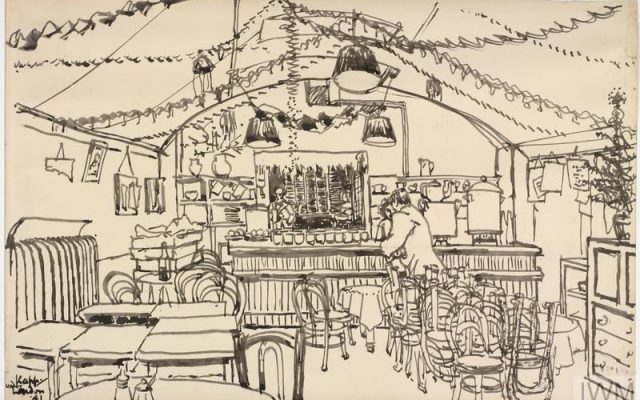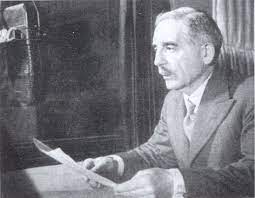It’s that time of the year again!
The bad news is that for the entire duration of the festive season you’ll be hearing Mariah Carey over and over wherever you go, the good news is…well, there are actually many! In an ideal world, what’s not to like about Christmas? From cosy winter markets and lights to hot chocolates, catch ups with friends and families, there are many reasons to love it! And I definitely do!
Christmas time has always been a very important moment in Britons’ life and so it was at the BBC. As a matter of fact, sending Christmas wishes to the people of the British Empire was the reason why King George V’s voice was aired for the first time. It was 1932 and no other monarch in British history had previously spoken on radio.
https://www.youtube.com/watch?v=Bf30P_PbcZo
In other words, the BBC was gradually becoming the reithian institution whose role was “to inform, to educate and to entertain” the nation and Christmas time was the perfect moment to remind people from all over the world what they had in common.
With the outbreak of the war, the BBC started broadcasting to European countries as well, with the first broadcast in French, Italian and German being aired in September 1938 on the occasion of the Munich crisis.

The interior of an underground canteen decorated for Christmas, St Martin-in-the-Fields church in London (Imperial War Museum Collection).
But the ideal world hardly meets reality and what before was the light of a Christmas tree soon became the thread of a bomb explosion. It is in this context that the BBC became a moral support for civilians living under the Nazi-fascist yoke while concurrently doing war propaganda. This is what Colonel Stevens, the most popular broadcaster of the BBC Italian Service, said to the Italians on 25 December 1944:
BUONA SERA. Questo avrebbe potuto essere il primo Natale di pace in Europa, se si fossero mutate in realtà le speranze fatte sorgere dalla travolgente avanzata degli eserciti alleati dalla Normandia fino alla frontiera tedesca […] Forse è più difficile sopportare con equanime serenità la delusione di una cara speranza che non una grave sciagura. In un certo senso, quindi, il sesto Natale di guerra a Londra è più triste di tutti quelli che lo hanno preceduto. – anche di quello tragico del 1940, trascorso tra un bombardamento e l’altro, così fitti da sembrare continui, così insistenti che pareva non avessero più fine. Allora in nessuno di noi affiorava altra speranza che quella di non essere colpiti dalla prossima bomba. Era una apprensione continua ed un sollievo perpetuo. (BBC Written Archives Centre, Italian Service Scripts, Col. Stevens, 28th August – 29th December 1944, 1000 – 1063)
GOOD EVENING. This could have been the first Christmas of peace in Europe, if only the hopes arose after the overwhelming advance of the Allied armies from Normandy to the German border had become reality […]. It is perhaps more difficult to bear with unbiased calm the disappointment of a dashed hope than a grave misfortune. Therefore, the sixth Christmas of war in London is somehow sadder than all the previous ones – even than the tragic one of 1940, when bombings were so frequent to seem constant, so persistent to feel endless. Back then our only hope was not to be hit by the next bomb. It was an incessant apprehension and a never-ending relief (the translation into English is mine).

These words speak for themselves and remind us that we still live in a world where all one might want for Christmas is not to see his or her children snatched away by the next bomb. My thoughts go the civilians of Gaza, Ukraine and all those territories where conflicts are still in place.
Merry Christmas!
(To know more about the BBC Italian Service during the war see Ester Lo Biundo, London Calling Italy, BBC broadcasts during the Second World War, Manchester University Press, 2022 https://manchesteruniversitypress.co.uk/9781526164810/)
